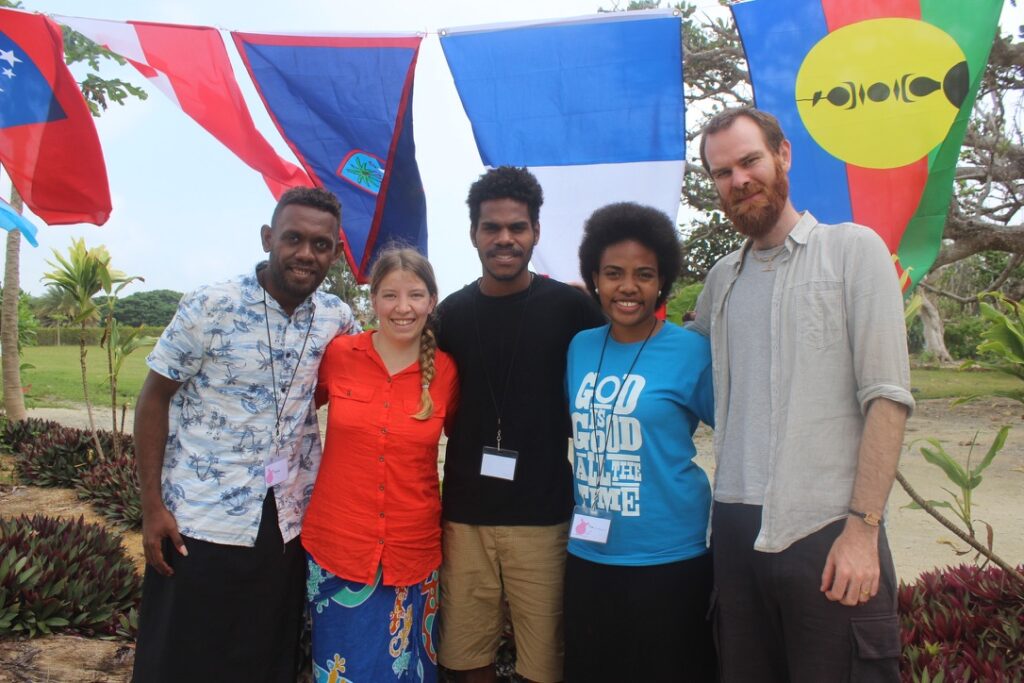Canvas | Issue 91: Engaging with Culture Through a Gospel Lens

IFES South Pacific Conference 2018
Just Like Me
I like spending time with people who are just like me. I don’t just mean people who are intelligent, interesting and good-looking. Nor do I just mean people who like sport, cars and being outdoors. I mean people who understand where I’m coming from, people who get my jokes, and people who share my history and background, my culture and even my subculture. But that’s not the world I live in. I live in a very multicultural area of Brisbane, with people from a wide range of backgrounds. And I live in a country with a highly layered history. There are the indigenous people of my country, with their culture of extraordinary complexity and duration. Then there are the migrants of British and European background, like me (with both convict and free-settler histories). And then there are more recent communities of people from the wider Pacific, Asia, Africa, Latin America and beyond. Whether I like it or not, my country is not a place where everyone is just like me.
Easier and Safer
Why do I like spending time with people who are just like me? I think it’s because it’s easier and safer. Crossing cultures, whether with people from Bratislava or people who like ballet, is hard work. You have to listen carefully to what people are saying and what they mean. You need to explain things carefully and find points of connection. And you have to take a lot of initiative to help the other person understand, connect and feel comfortable. That requires me to feel less comfortable and put in more effort. But it’s even more demanding than that. It means greater uncertainty and an increased likelihood of making cultural mistakes. When I meet someone from a culture that’s new to me, should I bow, hug, shake hands, or fist bump? Should I look them in the eyes, or look down? Should I speak or wait for them to speak? And am I doing offensive things that I don’t even know that I’m doing?
Why Bother?
All of this raises an obvious question: Why bother? Why bother crossing cultures at all? Why don’t we just let everyone spend time with people who are just like them? If it’s easier and safer, it sounds like the best option. But the gospel, the glorious central message of the Christian faith calls on everyone who follows Jesus to do so much more than playing safe and taking the easy option. Jesus himself, the central Person of our faith, is the ultimate crosser of cultures. The eternal Son of God had always lived with God the Father in his heavenly home, surrounded and adored by all the heavenly beings. Yet, he left all of that glorious comfort and acceptance to enter the world as a human being. And as a human being, he experienced rejection, suffering, shame, and death. By his death, he overcame our rejection of God, the shame of our wrongdoing, and God’s just punishment for rejecting him, by being shamed, punished and rejected in our place. Jesus, by his death, opened up the way for reconciliation. Now we can be accepted by God and joined to him in loving relationship. Jesus prioritised our good over his own comfort and safety (if you want to know where I got these ideas, read John 1, Hebrews 1–2 and Philippians 2).
Follow His Example
So the gospel shows us how to be connected to God, but it also shows us how to be connected to others. The gospel should transform our hearts and shape our attitudes and approach to other people. The apostle Paul put it this way:
I try to please everyone in every way. For I am not seeking my own good but the good of many, so that they may be saved. Follow my example, as I follow the example of Christ.
(1 Corinthians 10:33–11:1)
And what does it look like to follow Paul’s example as he follows Jesus’ example?
Though I am free and belong to no one, I have made myself a slave to everyone, to win as many as possible. To the Jews I became like a Jew, to win the Jews. To those under the law, I became like one under the law (though I myself am not under the law), so as to win those under the law. To those not having the law, I became like one not having the law (though I am not free from God’s law but am under Christ’s law), so as to win those not having the law. To the weak I became weak, to win the weak. I have become all things to all people so that by all possible means I might save some. I do all this for the sake of the gospel, that I may share in its blessings. (1 Corinthians 9:19–23)
Paul asserts that he is free, but he uses his freedom to serve. He imitates Jesus in sacrificial service, surrendering his comfort and safety. He doesn’t expect others to take the initiative and adapt to him. Instead, he takes the initiative and adapts to them. He is other-person-focused not self-focused, bearing the cost of crossing cultures.
The Gospel and Culture
The gospel has freed Paul from slavery to his own culture, to be culturally flexible for the sake of others. He doesn’t ignore culture, instead, he’s thinking hard about the bow, hug, or handshake issue. He doesn’t reject culture, for he’s working to culturally connect. Nor does he worship culture, for he’s prepared to work beyond his native Jewish culture. And he’s not doing it all for his benefit so that he can be accepted and loved. He’s doing it for their benefit, that they would accept God’s invitation and receive his love through believing the gospel. In this way, Paul is embodying a gospel culture of sacrificial love and other-person-centredness. He deeply trusts in Jesus as the one true Lord and Saviour, and expresses that through incredible flexibility and adaptability.
Paul is showing the Corinthian believers, and us, that the gospel challenges and changes us to stop seeking our own comfort and safety and to take the initiative to reach out to others.
Not Just Like Me, Like God
What this means for me, is when I see a difference between myself and other people, I try not to see it as a wall that stops me, but as a bridge that I should cross (or sometimes even build). Whether the other person is a Venezuelan or a vegan, I try to meet them on their ground, even if it means eating vegan food (and I’m the son of cattle farmers). Whether they’re a Gambian or a gamer, I’m not trying to pretend to be interested, but I’m learning to enter their world and be interested, for their sake. Sometimes that means I have to slow down my speech and smooth out my strange accent (and I like talking fast) and learn about whole new worlds of culture and interests. It can be hard work but it’s the gospel way, gospel culture. So I try to keep engaging with people who are not just like me, with a gospel heart and a gospel lens. For that’s how God has treated me, has treated us, by lovingly reaching out to us in Jesus.
Dave Walter, IFES Regional Secretary for the South Pacific





